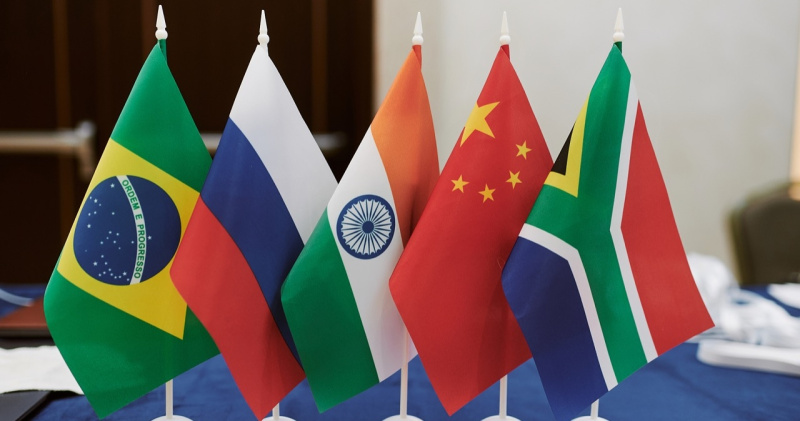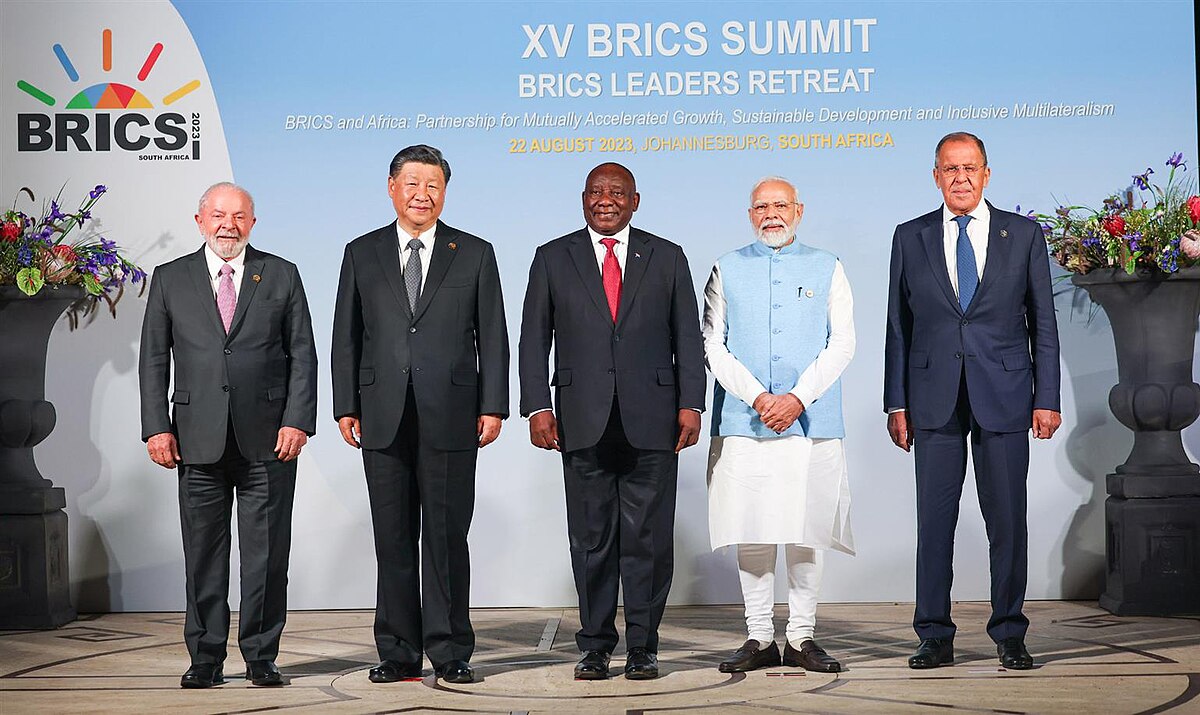BRICS Countries Unite for Sustainable Development

The BRICS countries including Brazil, Russia, India, China and South Africa have expanded their partnership for sustainable development. They are all major emerging economies, and they have been working together to promote sustainable development. At the 2023 summit, the BRICS countries agreed to expand their partnership for sustainable development. They will cooperate on a number of areas, including climate change, clean energy, sustainable agriculture, water conservation, disaster risk reduction, and poverty alleviation which covers SDG 1,2,3,4,13 and 17. Sustainable development is important for BRICS because it can help them to address the challenges of economic growth, poverty, and environmental degradation. Dealing with challenging situations requires collaborative approach from BRICS nations in order to ensure successful solutions. Sustainable development can help them to address these issues by promoting economic growth that is both environmentally and socially responsible. In terms of partnerships for sustainable development, the leaders recognize the importance of implementing the SDGs in an integrated and comprehensive way, highlighting the SDG Summit in September 2023 and the Summit of the Future in 2024 as significant opportunities for renewing international commitment to the 2030 Agenda.
The BRICS nations reiterated the significance of putting into practice the Paris Agreement of the United Nations Framework Convention on Climate Change (UNFCCC), as well as the principle of Common but Differentiated Responsibilities and Respective Capabilities (CBDR-RC) for achieving sustainable development. This includes enhancing the transfer of low-cost climate technology, building capacity, and mobilizing new additional financial resources that are affordable, adequate, and timely delivered for environmentally sustainable projects. They agreed that cooperation is required to ensure the 28th Conference of the Parties of the United Nations Framework Convention on Climate Change is effective and that it is necessary to preserve, promote, and strengthen the multilateral response to climate change. The leaders are aware of how crucial it is for BRICS nations to cooperate in order to address threats to the global economy and foster sustainable growth. In order to achieve a robust, sustained, balanced, and inclusive economic recovery, reaffirmation of the commitment to improving macroeconomic policy coordination and deepening economic cooperation was made. The BRICS countries considered the significance of continuing to implement the BRICS Economic Partnership Strategy 2025 in all relevant ministerial tracks and working groups, and to look for the ways that can speed up the implementation of the 2030 Agenda for Sustainable Development.

The expansion of the BRICS partnership for sustainable development is a positive step. It shows that the BRICS countries are committed to working together to address the challenges of sustainable development. The partnership has the potential to make a significant contribution to the global effort to achieve sustainable development. The BRICS countries have taken specific initiatives and are committed to share ideas and research on sustainable development particularly in clean energy, water conservation, and sustainable agriculture. They realize the gravity of global food insecurity and as one-third of the world’s food is produced by the BRICS nations, emphasis was given on the importance of progressing toward a fair and market-oriented agricultural trading system, eradicating hunger, attaining food security and enhanced nutrition, supporting sustainable agriculture and food systems, and implementing resilient agricultural practices.
The BRICS countries have worked together to develop a common position on climate change. They have called for ambitious action to reduce greenhouse gas emissions. At the summit, the countries emphasized the importance of developed countries in supporting the emerging economies like BRICS to gain access to low-emission technology and solutions that prevent, reduce, and eliminate GHG emissions and improve adaptation to climate change. In addition, the BRICS countries have launched a number of initiatives to promote sustainable development in Africa. These initiatives include the BRICS-Africa Partnership for Development to improve technology, innovation, and employment opportunities for sustainable and inclusive growth, as well as to unlock the potential of agriculture, and use renewable energy to transform Africa. The BRICS countries are still at the early stages of their partnership for sustainable development. However, they have made significant progress in a short period of time. The partnership has the potential to make a major contribution to the global effort in order to achieve sustainable development.